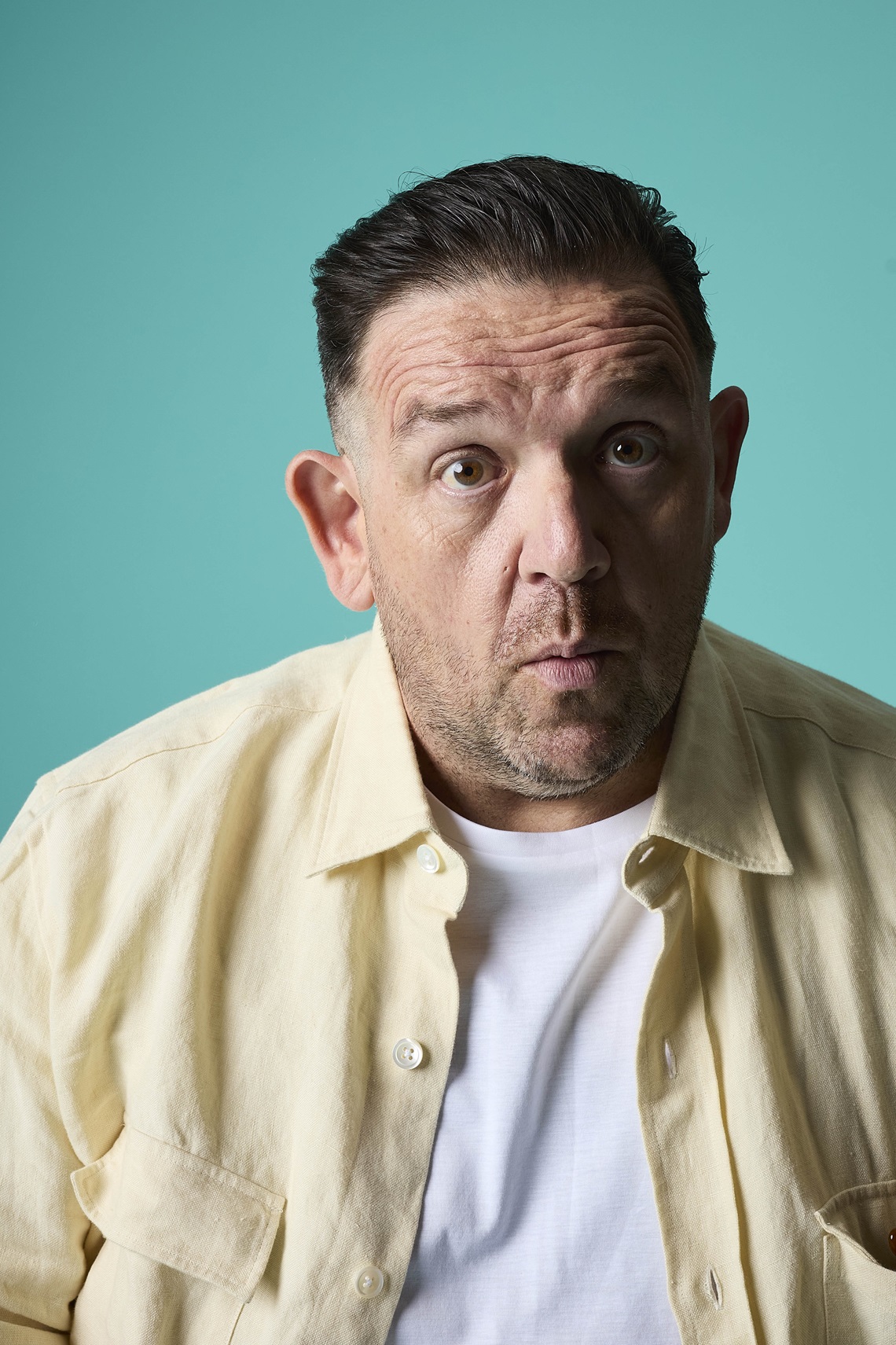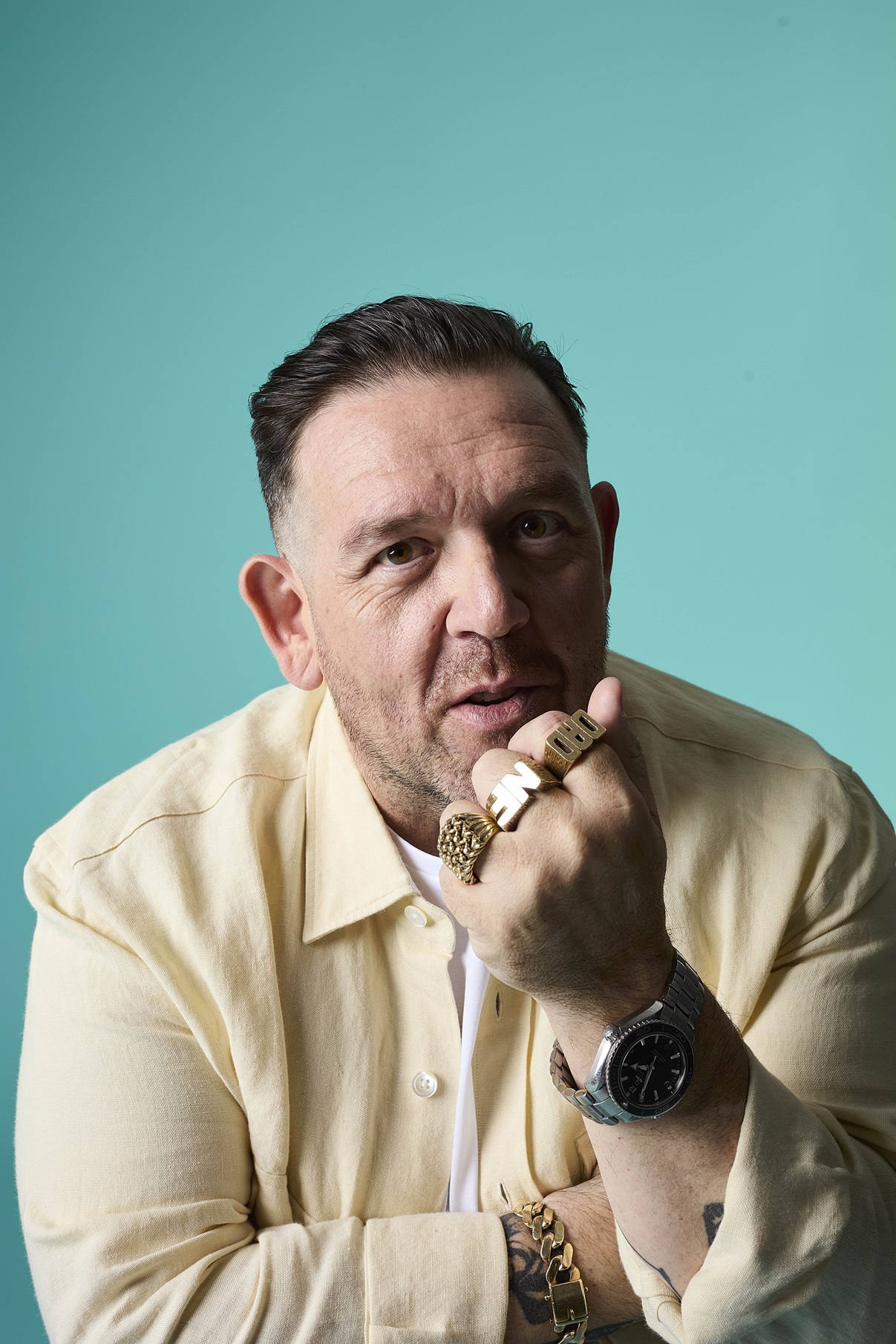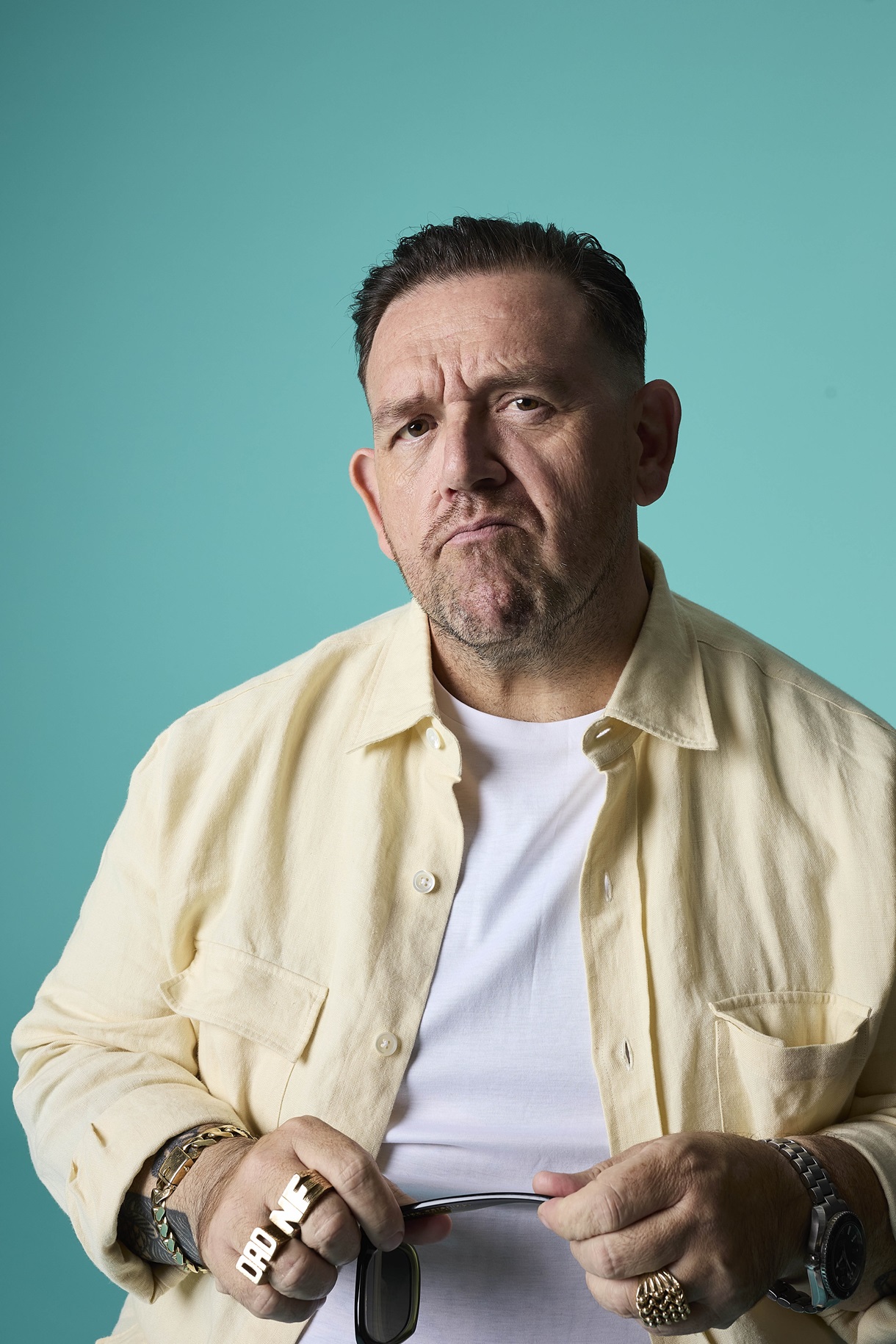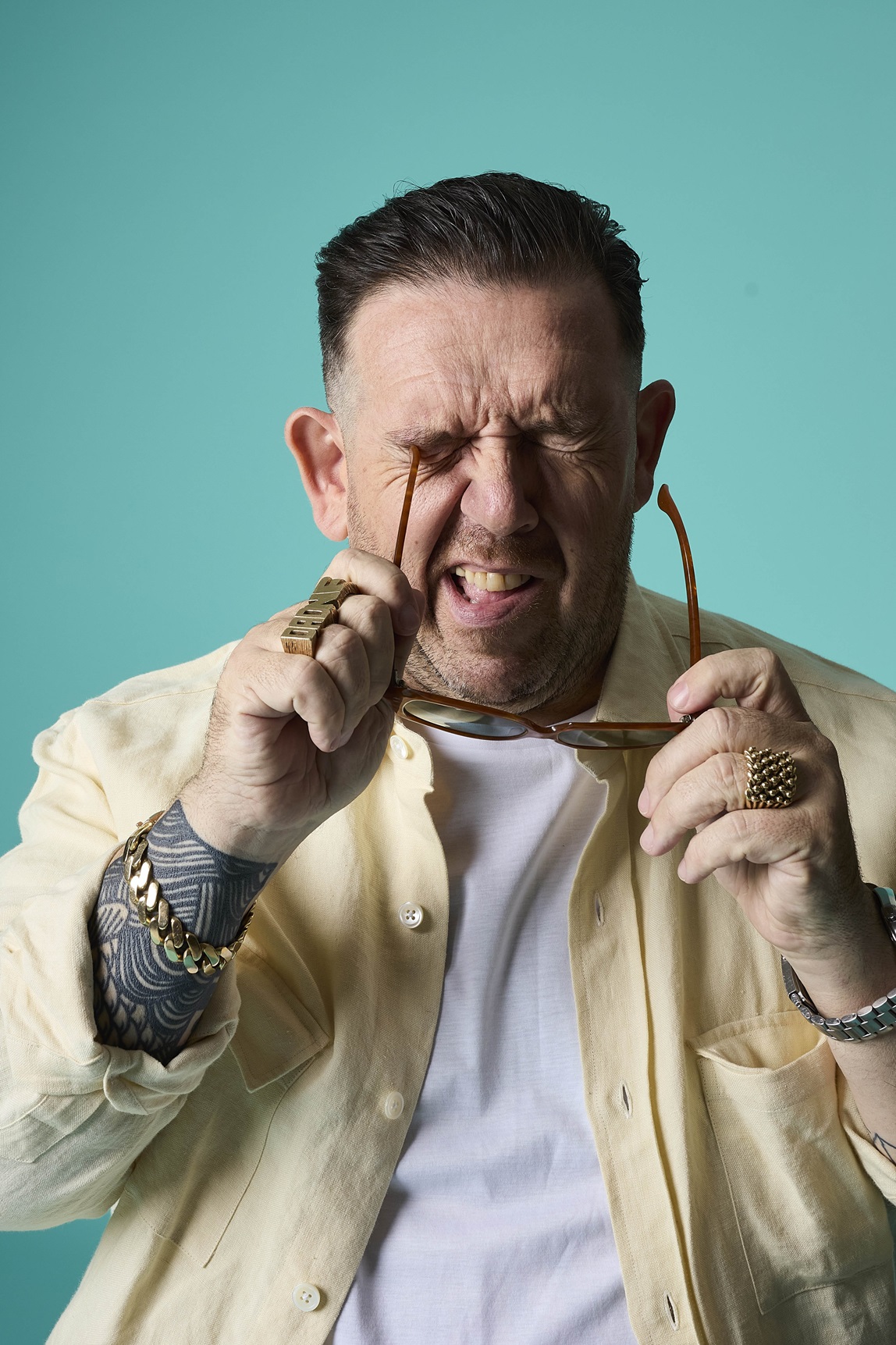
Nick Frost isn’t messing around. "Could I have two double espressos," he says, when we meet on the dot of 10am. "So, like, four espressos."
We are in a cafe, the Pheasantry, in Bushy Park, southwest London. The park, across the way from Hampton Court Palace, has been a hunting ground for kings, the spot where General Dwight Eisenhower plotted the D-Day landings from a tent and, latterly, the birthplace of Parkrun. But Frost, the 53-year-old British actor, sees other potential for this bucolic parkland now abundant with deer and protected anthills.
"When me and Simon" — that’s Pegg, actor and frequent Frost collaborator — "used to live together, we always had places we’d go should the zombie apocalypse actually happen", he says, necking the first of the espressos.
"We had lots of rules and plans, and the Pheasantry falls into that because there’s a fence all the way around. A really good fence. And you could easily cultivate the land that’s here and live in this structure."
With stern-faced suspicion, Frost scans the light-filled room, mainly filled with tired-looking new mums and retirees nursing a midweek cappuccino.
"So this is a great zombie fallback."
There are maaaaany possible follow-up questions, but I go with: where else have you identified as a decent apocalypse refuge?
"Another place is Twickenham stadium because, again, it’s completely fenced in," he says, the second double espresso bolted.
"And you could turn the pitch — not that I’ve over-thought this — into quarters: one would be for grazing livestock; I’d have an orchard in another; wheat or corn, etc, in the third; then I’d leave one fallow for each season. Then just rotate. And I’d live in, like, Vodafone’s executive box."
Overthinking is one of Frost’s defining traits, and makes him a highly entertaining, unpredictable person to spend an hour or so with. It is also very on-brand for him to spend his downtime obsessing over what would happen if the human race were faced with imminent, violent extinction.

"Even when I was 28, 29, when we were just starting to do Spaced, I had no plan at all," recalls Frost.
"Like, I just did a thing. Another thing turned up, and I did that. I went back to waitering after Spaced."
Frost’s involvement, with Pegg and the director Edgar Wright, in the Cornetto trilogy — Shaun of the Dead, Hot Fuzz and The World’s End — is enough to guarantee him life membership in the British film pantheon. But he’s clearly a grafter: alongside his prolific work in movies and TV, he’s written a pair of screenplays and a couple of books. The first, Truth, Half Truths and Little White Lies, was a memoir, telling his chaotic life story until he landed Spaced; the second, A Slice of Fried Gold, was nominally a cookbook, interspersed with haphazard reflections from his life and career, but much more unhinged and poignant than that sounds. Frost also makes and sells paintings.
"People think, because you made Shaun of the Dead, you’re a billionaire," he says.
"The money you get paid for a film is ... it’s not forever. I work because a) I like it, but b) I have to, like everyone."
Every three months or so, Frost will receive a royalty cheque from his acting work. He makes a great ceremony of gathering the family — his partner Hayley, their son and daughter, aged 6 and 4, and his teenage son from a previous relationship — for the reveal.
"Everyone crowds around to see me opening it," he says. "And I always pretend: ‘We’ve done it! We’ve done it!’ And it’s £35."
Still, playing the long game seems to be paying off. Frost recently landed two of the starriest roles of his career: first up, he is Gobber the Belch, the wise-cracking blacksmith, in the live-action remake of How To Train Your Dragon, the Cressida Cowell series that became an acclaimed animated trilogy. Then — even bigger — he is about to start shooting HBO’s TV adaptation of J.K. Rowling’s Harry Potter series, with each of the seven books luxuriating in its own eight-episode season.
Frost was recently unveiled as Rubeus Hagrid, the Hogwarts groundskeeper originally played in the films by Robbie Coltrane.
The news still seems to be sinking in.

"Especially Harry Potter. It’s like ... I’m f...... Hagrid!"
We’ll come back to all that, but first there’s the tumultuous past few years to process — what Frost calls "the big bang" of his life.
The cafe has been descended on by a throng of runners and dog-walkers, so we decide to stretch our legs in the garden. It’s an idyllic morning: rows of goslings waddle in front of us. But his survival instincts never leave high alert. "See, you’re fenced in, so you’re safe," he says, surveying the Pheasantry’s lush lawns, "lots of rabbits as well".
Frost, who today wears a velour Sergio Tacchini top, blue cords and Asics running shoes, looks great, and that’s part of the story.
"Six years ago I stopped taking any kind of drink or mind-bending substance," he says.
That went OK, but he started to find that he was swapping those dependencies for over-indulging in food, and his weight crept up to 35 stone.
"Food had been my first addiction when I was 10," Frost says.
This was the year his 18-year-old sister died of an asthma attack.
"And I realised that it’s fine to stop all that sh.. [drink and drugs]. But then going in the car and parking down by the river when it was nighttime and eating a tier of a wedding cake, that’s going to f...... kill you, as well."
Frost accepted he needed a more drastic overhaul.
"Just a realisation that I would die," he says, matter-of-factly.

Some of the changes are physical — Frost had his knee replaced last year and now regularly cycles loops of Bushy Park — and others are mental. When he was 47, about the time he was giving up drink and drugs, he was diagnosed with ADHD, OCD, PTSD, dyslexia and anxiety disorders. That knowledge has been helpful to Frost and those close to him for explaining some of his more esoteric behaviours: say, rewatching old episodes of chef Rick Stein’s TV shows.
"I read a thing about manifesting," Frost says, referring to the time he was waiting to hear about Harry Potter.
"And I thought, ‘Let’s write the word Hagrid down as many times I can’. And I wrote it down 5000 times. But rereading it back, my dyslexia took over at some point, and I didn’t realise that for 2000 of them, I’d been writing ‘Hadridge’, I was spelling it completely wrong. So I’m still waiting to get the call to say, ‘Nick, you’re Hadridge, you’ve got it’."’
The Hagrid announcement in April was, in some ways, bittersweet for Frost. He had to disable comments on his triumphant Instagram post after criticism came from trans-rights supporters that he would collaborate with Rowling, an executive producer on the new show and vocal gender-critical campaigner.
"She’s allowed her opinion and I’m allowed mine, they just don’t align in any way, shape or form," Frost says.
Does he worry that the debate might overshadow the series?
"I don’t know," he replies. "But maybe it shouldn’t blow over? We shouldn’t just hope it will go away, because it makes it easier. Maybe we should educate ourselves."
We’re back at Frost’s car — surprisingly tidy for someone with young children — and he offers me a ride to the station. We talk about his tattoos, which he started getting compulsively after his father died, when Frost was 39.
"The San Quentin sketchbook," he says, smiling, "the sh....., the better".
One tattoo comes up repeatedly in our conversation: wobbly, ink-black writing on his forearm reads "Poor Old Me", a reminder to Frost to count his blessings, of which, he acknowledges, there are a multitude right now.
As the car pulls into the station, Frost says, "I hate the word ‘legacy’, but there’s always a part of me that wants to be remembered when I die. That’s why I want to be buried, so I’ve got a little headstone somewhere. I write in the cookbook that the only thing I’ve got of my mum’s was a f...... spoon. That’s it. And I think, ‘I’d want to be more than a spoon’." — The Observer












